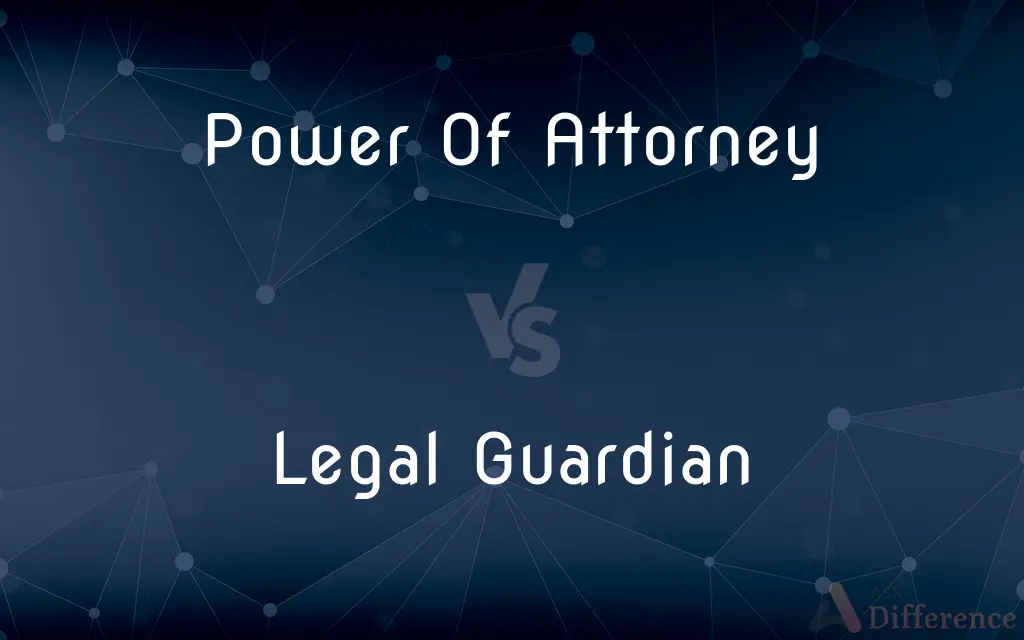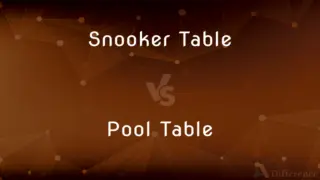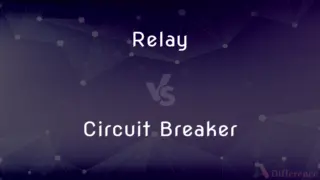Power Of Attorney vs. Legal Guardian — What's the Difference?
By Urooj Arif & Fiza Rafique — Published on October 17, 2024
Power of Attorney grants someone the authority to make decisions on another's behalf, in financial or healthcare matters. Legal Guardian has court-appointed authority to care for another individual, involving broader decision-making responsibilities.

Difference Between Power Of Attorney and Legal Guardian
Table of Contents
ADVERTISEMENT
Key Differences
Power of Attorney (POA) is a legal document that allows an individual, known as the principal, to designate another person, called the agent or attorney-in-fact, to make decisions on their behalf. These decisions can range from managing financial affairs to making healthcare decisions, depending on the type of POA established. This arrangement can be temporary or permanent and does not remove the principal's right to make their own decisions as long as they are capable.
A Legal Guardian, on the other hand, is someone appointed by a court to make decisions for another person, known as the ward, who is unable to make decisions for themselves due to age, incapacity, or disability. The guardianship covers a broader spectrum of decision-making, including personal, financial, and medical decisions. Unlike POA, guardianship may completely remove the ward's legal rights to make certain types of decisions.
The process of appointing a POA is generally simpler and requires less oversight than establishing a guardianship. While a POA can be set up with legal documents and without court involvement, appointing a Legal Guardian involves a court process, where the court monitors the guardian's actions to ensure they act in the best interests of the ward.
The scope of authority under a POA can be specifically tailored to the principal's needs and can be revoked or altered as long as the principal is competent. In contrast, guardianship is more rigid, often granting the guardian comprehensive authority over the ward's affairs, and can only be modified or terminated by a court order.
Both POA and legal guardianship are mechanisms to assist individuals who need help managing their affairs. However, they are utilized under different circumstances and have distinct legal implications for the autonomy and rights of the individuals involved.
ADVERTISEMENT
Comparison Chart
Purpose
Grants someone authority to make specific decisions on another's behalf
Court-appointed authority over an individual who cannot make decisions for themselves
Scope
Can be limited to financial, health, or specific decisions
Broad, covering personal, financial, and health decisions
Appointment Process
Created through a legal document without court involvement
Requires a court process and judicial approval
Duration
Can be temporary or permanent, with conditions for revocation
Generally permanent unless modified or terminated by a court
Oversight
Limited, as long as the agent acts within the granted authority
Court oversight to ensure decisions are in the ward's best interest
Rights of the Individual
Principal retains the right to make decisions unless incapacitated
Ward may lose certain legal rights to make decisions
Compare with Definitions
Power Of Attorney
Can specify authority over financial or health decisions.
She used her Power of Attorney to make medical decisions for her mother.
Legal Guardian
Protects individuals unable to care for themselves.
The legal guardian ensured her elderly ward received necessary medical care.
Power Of Attorney
A legal document authorizing someone to act on your behalf.
He granted his daughter Power of Attorney to manage his investments.
Legal Guardian
Someone legally responsible for another's care.
The court appointed her as the legal guardian for her minor nephew.
Power Of Attorney
Does not require court approval to implement.
They established a Power of Attorney with just a notarized document.
Legal Guardian
Has broad authority, including personal and financial decisions.
As a legal guardian, he managed both the healthcare and finances of his ward.
Power Of Attorney
Revocable by the principal at any time.
After recovering, he revoked the Power of Attorney he had given.
Legal Guardian
Cannot be revoked by the ward.
Once established, the ward couldn't dismiss the legal guardian without a court order.
Power Of Attorney
Effective upon the principal's incapacitation, if specified.
The Power of Attorney activated when he was deemed medically incapacitated.
Legal Guardian
Appointment and oversight by a court.
Her guardianship was reviewed annually by the court to ensure the child's welfare.
Common Curiosities
Can a Power of Attorney and a Legal Guardian be the same person?
Yes, the same individual can be appointed both as an attorney-in-fact under a POA and as a legal guardian, depending on circumstances and legal requirements.
How can a guardianship be terminated?
Guardianship can be terminated by the court if it's proven that the ward has regained capacity or at the ward's death.
Can guardianship be temporary?
Yes, courts can grant temporary guardianship in emergency situations or until a permanent guardian is appointed.
How is a legal guardian compensated?
Guardians can be compensated for their expenses and time, subject to court approval and depending on the ward's financial situation.
Are there different types of POA?
Yes, there are several types, including General, Durable, and Healthcare POAs, each with different scopes and conditions.
How does one choose between a POA and legal guardianship?
The choice depends on the individual's capacity to make decisions, the need for court oversight, and the desired scope of decision-making authority.
Is a POA valid after death?
No, a Power of Attorney becomes invalid upon the principal's death. At that point, the executor of the estate or a court-appointed administrator takes over.
What happens if there's no POA or guardianship in place and someone becomes incapacitated?
A court may need to step in to appoint a guardian or conservator to manage the individual's affairs.
Does a Power of Attorney override the wishes of the principal?
No, a POA is meant to represent the principal's wishes and cannot be used to act against their known desires when competent.
Can a minor have a Power of Attorney?
No, since entering into a POA agreement requires legal capacity, which minors are generally presumed not to have.
Share Your Discovery

Previous Comparison
Snooker Table vs. Pool Table
Next Comparison
Relay vs. Circuit BreakerAuthor Spotlight
Written by
Urooj ArifUrooj is a skilled content writer at Ask Difference, known for her exceptional ability to simplify complex topics into engaging and informative content. With a passion for research and a flair for clear, concise writing, she consistently delivers articles that resonate with our diverse audience.
Co-written by
Fiza RafiqueFiza Rafique is a skilled content writer at AskDifference.com, where she meticulously refines and enhances written pieces. Drawing from her vast editorial expertise, Fiza ensures clarity, accuracy, and precision in every article. Passionate about language, she continually seeks to elevate the quality of content for readers worldwide.













































